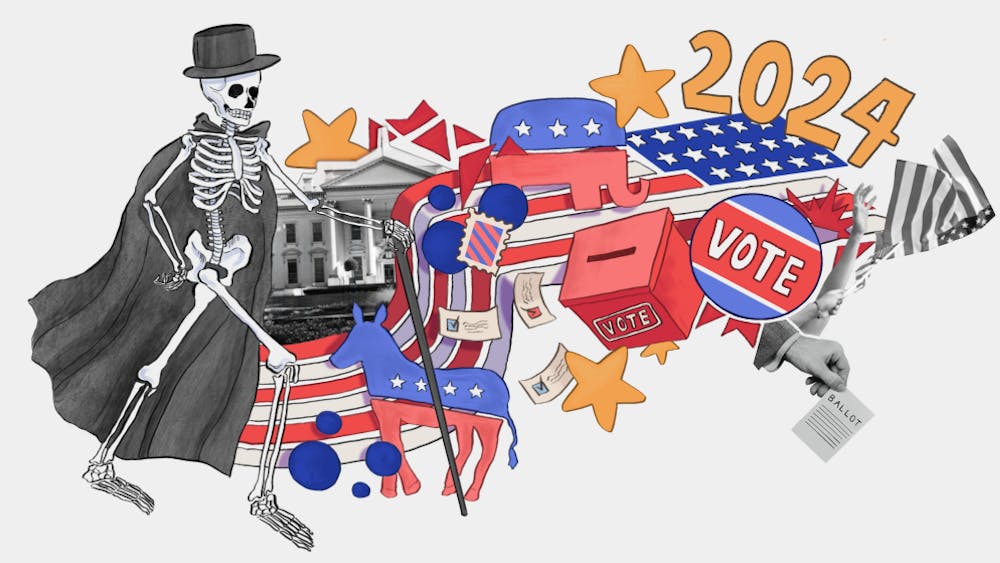When the return to in-person instruction this fall was met with a spike in positive COVID-19 cases, Emory University changed its COVID operating condition status from green to yellow. The switch comes with stricter protocols, increased social distancing and restricted public gathering policies. While green operating status requires masks indoors but not outdoors, yellow operating status encourages masks outdoors in group settings.
With these new policies, students and faculty have had to make adjustments while being on campus. Between balancing classes, extracurricular activities and work, students must now also readjust to the new social distancing and public gathering policies put into place.
Mary Yeboah (23C) was worried about whether students would follow the social distancing and public gathering guidelines. But when she saw that many students were following the guidelines, her concerns subsided.

“At first, [I was] filled with anxiety,” Yeboah said. “But as I got onto campus and saw that people were willing to change their habits, I adjusted.”
Yeboah also felt that the University has done an adequate job in implementing COVID policies, but noted there could be stricter testing regulations in place to prevent another spike in cases. Currently, COVID asymptomatic screenings are required weekly only for unvaccinated individuals and via appointment at certain locations. However, weekly COVID testing for vaccinated individuals is not one of the campus COVID guideline requirements.
“I think overall, the University’s guidelines for social distancing and public gathering are sufficient,” Yeboah said. “However, I think more students should be encouraged to get tested often and not just when cases on campus are surging.”
Still, Yeboah felt that students sometimes forget to social distance when they should, which she believed could add to the spread on campus.
“You do see an accumulation of people walking in groups,” Yeboah said. “It can sometimes become easy to not wear your masks around your roommates or [not] social distance.”
Bada Said (25C) agreed that the University has done an adequate job implementing social distancing and public gathering policies. Yet, Said is confused by some of the guidelines, as the policies can be inconsistent and a nuisance to follow in certain situations.
“It's really weird where we draw the lines about social distancing and public gathering,” Said explained. “The DCT has long lines where people wait on it without social distancing properly”
The stricter COVID guidelines also have an effect on students’ social lives. Aisha Sajo (25C) has had difficulty forming relationships as a first year.
“Sometimes I want to go to events outside of campus, but sometimes I think about whether ... going will put me at risk for COVID,” Sajo said. “It's hard to remember people’s names sometimes because of the masks.”
While Sajo has had her own battle with making social decisions, she’s noticed she’s not the only one. Sajo’s peers have also had to decide whether or not they want to attend events with large numbers of people both indoors and outdoors. At large events, it would be hard to social distance, which can increase the risk of getting and spreading COVID.
“I do think my peers have had trouble social distancing mostly because of the urge to go to parties and events where there are a lot of people,” Sajo said. “The excitement of being in college makes it hard for people to social distance.”
Still, Sajo believes Emory has done their part implementing guidelines that make sure students are safe.
“I think Emory did as much as they could as a school,” Sajo said. “It's just up to the students to make sure they follow the rules.'’
Now returning from fall break, Said is curious to see if COVID cases might increase again. With some sponsored traveling permitted under the yellow operating status, many students left campus to return home for the break.
“It will be interesting to see how Emory responds to students coming back from traveling over the fall break,” Said remarked. “I know a lot of people who get tested every week or so, but not everyone is as responsible.”







